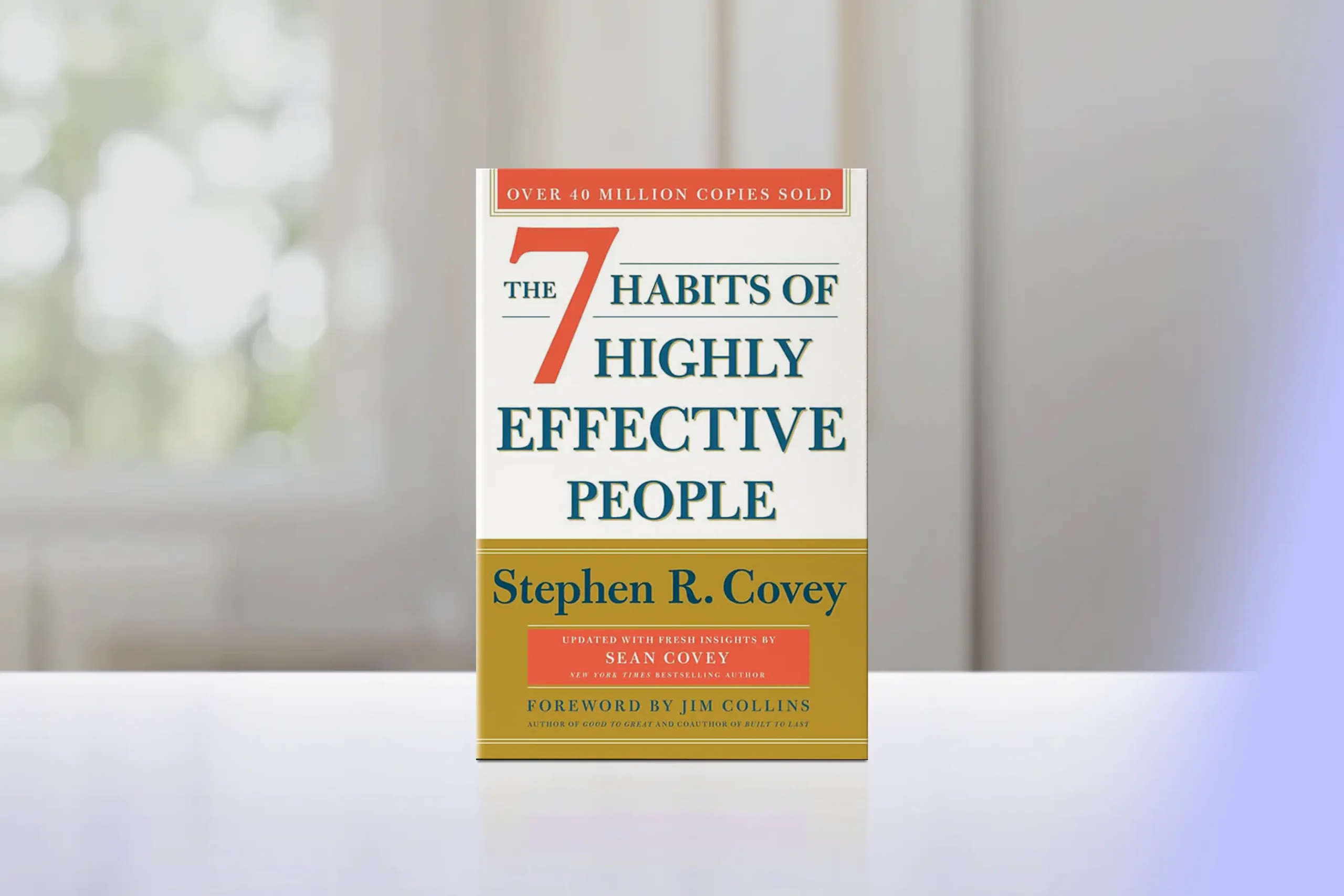Your forties aren’t a midlife crisis — they’re a midlife awakening. This is the decade of mastery, where wisdom meets opportunity and clarity replaces chaos. You’re old enough to know what truly matters, yet young enough to act boldly. Health, wealth, purpose, and legacy take center stage.
The 40 Most Important Things to Do in Your 40s isn’t about ticking boxes—this decade can be your most powerful yet. It’s about choosing depth over distraction, purpose over pressure, and shaping a life that feels both fulfilling now and meaningful for the future.
Inside this article:
TL;DR
Your forties are about living strategically — making decisions rooted in experience, not trial and error. It’s the decade to prioritize preventive health, accelerate finances, pursue meaningful work, and invest deeply in relationships. Stop apologizing for boundaries and own your expertise. This stage is about quality over quantity, depth over breadth, impact over impression. You’re not starting over — you’re refining everything you’ve built into its most powerful form.
Purposeful Living in Your 40s
Create a life of deep meaning while building a legacy that reflects your truest values.

1. Redefine Your Why
Define your life’s “why” and core values clearly. Your forties demand more than surface-level satisfaction—you need a compelling reason to get up each morning that goes beyond just paying bills or meeting expectations.
Why it’s important: Research by psychologist William Damon shows that people with a clear sense of purpose live longer, experience better health, and report higher life satisfaction. Viktor Frankl’s work in “Man’s Search for Meaning” demonstrates that purpose provides resilience during difficult times—and your forties will inevitably bring challenges.
Try this: Look inside to redefine yourself. Complete this sentence: “I feel most alive when I’m…”—then start to structure more of your life around that answer.
2. Choose Experiences Over Things
Focus on experiences and memories over possessions. Material accumulation often peaks in your forties, but research consistently shows that experiential purchases provide more lasting happiness than material ones.
Why it’s important: Cornell psychology professor Thomas Gilovich‘s landmark study found that experiential purchases become more satisfying over time, while material purchases lose their appeal. Experiences become part of our identity in ways that possessions cannot—and in your forties, investing in identity is crucial.
Quick tip: Spend less on stuff and more on experiences. Before a large material purchase, ask yourself: ‘What experience could this money create instead?
3. Strengthen Your Inner Circle
Deepen relationships with family and close friends. Your forties are when you realize that having many acquaintances is less valuable than having a few people who truly know and support you.
Why it’s important: The Harvard Study of Adult Development, spanning over 80 years, found that relationship quality is the strongest predictor of life satisfaction and health. Dr. Robert Waldinger’s research shows that people with strong social connections live longer and experience less cognitive decline as they age.
Remember: Quality trumps quantity—invest deeply in the relationships that actually matter to you.
4. Reconnect with Old Friends
Reach out to old friends and meaningful communities. Life has a way of creating distance between people who once mattered to each other, but your forties are the perfect time to rebuild bridges that time and circumstance may have weakened.
Why it’s important: Research published in the Frontiers in Psychology shows that rekindling old friendships can provide unique psychological benefits, including increased sense of continuity and identity stability. These relationships carry shared history that can’t be replicated with new connections.
Try this: Each month, send a meaningful message to an old friend—focus on being genuine, not on social media likes. Remember that not all relationships are meant to last, and that’s okay too.
5. Give Back Generously
Volunteer, mentor, or coach to make a difference. Your forties are when you have enough experience to truly help others while still having the energy to make a meaningful contribution to causes you care about.
Why it’s important: The latest research indicates that people who volunteer live longer and experience better mental health. Allan Luks’s work on “helper’s high” shows that giving back releases endorphins and reduces stress hormones, creating both immediate and long-term wellbeing benefits.
Quick tip: Start by giving just two hours per month, and increase if you want. Consistency matters more than the amount of time.
6. Refine Your Priorities
Cut out the noise and focus on what truly matters. Your forties require ruthless prioritization—every yes to something unimportant is a no to something that could change your life for the better.
Why it’s important: As author and productivity specialist Cal Newport argues in Deep Work, focusing on one priority at a time unlocks outsized impact. By your forties, you have the experience to know what truly deserves your energy — and what doesn’t.
Remember: Saying no to good opportunities leaves room for great ones.
7. Be Mindful Daily
Start or deepen a mindfulness or meditation practice. The mental chatter that comes with midlife responsibilities—career pressure, aging parents, growing children—requires intentional practices for managing stress and maintaining clarity.
Why it’s important: Dr. Sara Lazar’s neuroimaging research at Harvard shows that meditation literally changes brain structure, increasing gray matter density in areas associated with learning, memory, and emotional regulation. After eight weeks of practice, participants showed measurable improvements in stress resilience.
Try this: Start with just five minutes of focused breathing each morning—build the habit before extending the time.
8. Design Your Legacy
Decide how you want to be remembered and live accordingly. Your forties are when you begin thinking generationally—not just about immediate success, but about the lasting impact you’ll have on your family, community, and the world.
Why it’s important: Research shows that people who think about their legacy experience greater life satisfaction and are more likely to engage in meaningful activities. Legacy thinking provides a framework for making decisions that align with your deepest values.
Quick tip: Write your own eulogy—not in a morbid way, but as a thoughtful guide for how you want to live the rest of your life.
Health and Wellbeing in Your 40s
Treat your body as the foundation for everything else you want to accomplish in the decades ahead.

9. Stay Ahead of Health
Prioritize annual check-ups and preventive screenings. Your forties are when many serious health conditions begin developing silently—catching them early can literally add years to your life.
Why it’s important: The American Cancer Society reports that survival rates for major cancers are dramatically higher when caught in early stages. Dr. Michael Roizen’s research shows that preventive care can reduce biological aging by up to 15 years when implemented consistently in midlife.
Try this: Schedule all your annual medical appointments at the start of the year—or on your birthday—and treat them as non-negotiable.
10. Move with Purpose
Keep a balanced exercise routine that includes strength, cardio, and flexibility. Your metabolism is changing, your bone density is decreasing, and your muscle mass is naturally declining—but all of these can be dramatically slowed with the right approach to movement.
Why it’s important: Research from the Mayo Clinic shows that people who maintain regular exercise in their forties have telomeres (cellular aging markers) that are 9 years younger than sedentary peers. Dr. Miriam Nelson’s studies demonstrate that strength training specifically can reverse age-related muscle loss and improve bone density.
Remember: You don’t need to be an athlete—you just need to move consistently and challenge your body regularly.
11. Eat for Energy
Focus on whole, unprocessed foods that fuel your body rather than just filling it. Your forties are when dietary choices begin having more immediate and visible effects on energy, weight, and overall health.
Why it’s important: Dr. Walter Willett’s research at Harvard shows that diet quality becomes increasingly important for disease prevention as we age. The Mediterranean diet specifically has been shown to reduce heart disease risk by and cognitive decline when adopted in midlife.
Quick tip: Make half your plate vegetables at every meal—it’s the simplest rule that covers most nutritional bases.
12. Protect Your Sleep
Aim for 7-8 hours of quality rest every night. Sleep isn’t a luxury in your forties—it’s when your body repairs itself, consolidates memories, and resets your hormonal systems for optimal function.
Why it’s important: Dr. Matthew Walker’s research shows that people who sleep less than 7 hours nightly have a higher risk of developing cancer and are three times more likely to catch a cold. Sleep debt accumulated in midlife contributes to accelerated cognitive aging and increased mortality risk.
Try this: Create a wind-down routine that starts 30 minutes before bed—your body needs time to transition into sleep mode.
13. Cut the Bad Habits
Limit alcohol consumption and avoid smoking. Habits that seemed manageable in your twenties and thirties can become serious health risks after age 40, as your body’s ability to process toxins declines.
Why it’s important: According to the World Health Organization and research published in The Lancet, any amount of alcohol increases health risks, with effects compounding significantly after age 40. Additionally, evidence from the New England Journal of Medicine shows that quitting smoking by age 40 can add up to nine years to life expectancy.
Real talk: You’re too old to pretend these habits aren’t affecting you—the evidence is likely already showing up in how you feel.
14. Stress Less
Use healthy outlets like hobbies, nature, or movement to manage the inevitable stresses of midlife. Your forties bring unique pressures—peak career demands, aging parents, financial pressures—that require intentional stress management strategies.
Why it’s important: Research published in Nature shows that prolonged stress levels can accelerate aging by up to 10 years and increase risk of heart disease, diabetes, and depression. The good news: stress management techniques can reverse many of these effects.
Quick tip: Find one activity that consistently helps you decompress and schedule it weekly—treat it as medicine, not luxury.
15. Care for Your Core Health
Watch heart, bone, and joint wellness with particular attention. These systems undergo significant changes in your forties, but proactive care can prevent or slow age-related decline dramatically.
Why it’s important: The Framingham Heart Study shows that heart disease risk factors established in the forties predict cardiovascular health for the next 30 years. Bone density research demonstrates that peak bone loss occurs in the decade following menopause for women and gradually for men starting around age 40.
Remember: What you do now for these systems determines how well you’ll age in the decades ahead.
16. Mind Your Mind
Prioritize mental health with therapy, reflection, or journaling. Your forties can bring unexpected emotional challenges—midlife transitions, loss of parents, relationship changes—that benefit from professional support or structured self-reflection.
Why it’s important: Research in Positive Psychology shows that people who address mental health proactively tend to experience better physical health, stronger relationships, and higher life satisfaction. The stigma around therapy has decreased significantly, making this the perfect time to invest in your psychological wellbeing.
Try this: Schedule a mental health check-up just like you would a physical—even if everything feels fine, prevention beats crisis intervention.
Financial Freedom in Your 40s
Accelerate your financial strategy while you’re at peak earning potential and before major life expenses hit.

17. Max Your Future
Maximize retirement contributions and employer matches. Your forties are your peak earning years, making this the most powerful time to accelerate retirement savings through compound interest and higher contribution limits.
Why it’s important: Financial research shows that every dollar saved in your forties is worth $7 at retirement due to compound growth. The catch-up contributions available after age 50 mean you can save $30,000+ annually in tax-advantaged accounts.
Try this: Increase your retirement contribution by 1% every six months until you hit the maximum—you’ll barely notice each small increase.
18. Dump the Debt
Pay off high-interest debt quickly, starting with credit cards and personal loans. Debt that felt manageable in your thirties becomes a significant barrier to financial freedom in your forties and beyond.
Why it’s important: According to Dave Ramsey’s principles, people who eliminate high-interest debt in their forties will accumulate more wealth at retirement than those who carry debt into their fifties. Additionally, becoming debt-free often brings psychological benefits such as reduced stress and improved sleep quality.
Quick tip: Use the debt avalanche method—pay minimums on everything, then attack the highest interest rate debt first.
19. Build a Safety Net
Keep a 6-12 month emergency fund in easily accessible accounts. Your forties bring increased financial responsibilities—aging parents, teenage children, potential career transitions—that require substantial emergency reserves.
Why it’s important: Research from Vanguard shows that people with adequate emergency funds are 70% less likely to experience financial stress during unexpected life events. Having 6-12 months of expenses saved provides the freedom to make career changes or handle family emergencies without derailing long-term goals.
Remember: This money should be boring and accessible—high-yield savings accounts, not investment portfolios.
20. Grow Smart
Diversify investments and review your portfolio regularly. Your forties are when you need to balance growth with stability as retirement approaches but isn’t imminent.
Why it’s important: Nobel Prize winner Harry Markowitz’s portfolio theory shows that diversification can reduce risk without sacrificing returns. Vanguard’s research demonstrates that people who review and rebalance portfolios annually outperform those who set-and-forget by 1.5% annually.
Try this: Follow the age-in-bonds rule as a starting point—if you’re 45, consider 45% bonds and 55% stocks, then adjust based on your risk tolerance.
21. Plan Ahead
Create or update your will and estate plan. Your forties are when you likely have significant assets and dependents who need protection if something happens to you.
Why it’s important: Estate planning prevents unnecessary complications for your family in the event of your passing. The cost of setting things up now is minimal compared to the legal fees, delays, and taxes your loved ones could face without it.
Quick tip: At minimum, you need a will, power of attorney for finances, and healthcare directive—these cover 90% of situations.
22. Protect What Matters
Ensure you have adequate health, life, and disability insurance coverage. Your forties are when insurance becomes more expensive but also more crucial as health risks increase and family responsibilities peak.
Why it’s important: According to the World Health Organization, around 16% of people worldwide live with a significant disability. While disability can occur at any age, the risk of health challenges grows as you get older. Ensure you have adequate health, life, and disability insurance coverage.
Real talk: Insurance isn’t fun to think about, but neither is leaving your family financially vulnerable.
23. Redefine Wealth
See financial freedom as choice, values, and security rather than just accumulation. Your forties are when you realize that money is a tool for creating the life you want, not an end goal in itself.
Why it’s important: Research by happiness expert Dr. Daniel Kahneman shows that beyond $75,000 annually (adjusted for inflation), additional income has diminishing returns on happiness. The real value of wealth in your forties is the freedom to make choices based on values rather than financial pressure.
Try this: Calculate your “enough” number—how much money would let you make decisions based on what matters most to you?
24. Teach Money Skills
Pass on financial literacy to your children if you have them. Your forties are the perfect time — your children are old enough to start understanding money, but young enough to form healthy habits that can last a lifetime.
Why it matters: Research from Dr. Lewis Mandell shows that children who are exposed to money management early — especially through guidance from their parents — tend to have stronger financial skills as they grow up. Teaching your children about money is one of the most practical and lasting gifts you can give them.
Quick tip: Start with basic concepts—needs vs. wants, saving before spending, and the power of compound interest through simple examples.
Career Development in Your 40s
Leverage your experience while positioning yourself for long-term professional fulfillment and impact.

25. Check Your Direction
Reassess your career goals and alignment with your life priorities. Your forties are when you have enough experience to know what actually energizes you versus what just pays well.
Why it’s important: Career development expert Herminia Ibarra’s research shows that career satisfaction peaks when work aligns with personal values and utilizes core strengths. People who realign their careers in their forties report higher job satisfaction and lower burnout than those who stay in mismatched roles.
Try this: Rate your current job on fulfillment (1-10) and alignment with your values (1-10)—anything below 7 deserves serious consideration for change.
26. Refine Your Skills
Keep learning through courses, certifications, and new challenges. The half-life of skills is shrinking rapidly, making continuous learning essential for career security and growth.
Why it’s important: According to the World Economic Forum’s Future of Jobs Report 2025, employers expect that 39% of core skills will change by 2030. Additionally, OECD research indicates that individuals who engage in continuous learning during their forties are 60% more likely to advance in their careers and 40% less likely to face age-related discrimination.
Quick tip: Focus on skills that complement AI rather than compete with it—emotional intelligence, creative problem-solving, and complex communication.
27. Network with Intention
Build and nurture professional connections based on mutual value rather than transactional needs. Your forties are when networking becomes less about climbing and more about contributing.
Why it’s important: LinkedIn research shows that 85% of jobs are filled through networking, but the quality of connections matters more than quantity. Professor Brian Uzzi’s research demonstrates that diverse professional networks lead to more innovative thinking and better career opportunities.
Remember: The best networking happens when you focus on how you can help others rather than what you need.
28. Lead and Mentor
Take on leadership or mentoring opportunities to develop others while expanding your own skills. Your forties are when you have enough experience to guide others while still being young enough to learn from the experience.
Why it’s important: Research shows that people who mentor others experience increased job satisfaction, expanded networks, and enhanced leadership skills. Mentoring also provides perspective on your own career journey and creates lasting professional relationships.
Try this: Offer to mentor one person this year—the time investment is minimal but the impact for both of you can be significant.
29. Explore New Paths
Consider entrepreneurship or side ventures while you still have energy and financial stability to take calculated risks. Your forties offer a unique sweet spot of experience, resources, and time horizon for business ventures.
Why it’s important: The Kauffman Foundation reports that the average age of successful entrepreneurs is 45, not 25. People starting businesses in their forties have higher success rates due to industry knowledge, professional networks, and financial resources accumulated over their careers.
Real talk: You don’t need to quit your day job immediately—many successful businesses start as side projects.
30. Know Your Worth
Negotiate salary package with confidence based on your experience and track record. Your forties are when you should be compensated for the value you bring, not just the time you put in.
Why it’s important: Research shows that people who negotiate salaries regularly earn 7% more per year than those who don’t—and the gap compounds significantly over decades. Your forties are peak earning years, making effective negotiation crucial for long-term financial security.
Try this: Research industry salary ranges annually and document your specific contributions and results before any compensation discussion.
31. Polish Your Personal Brand
Maintain a strong personal presence online and offline that reflects your expertise and professional values. Your forties are when your reputation becomes one of your most valuable career assets.
Why it’s important: According to a CareerBuilder survey, 70% of employers use social networking sites to research job candidates during the hiring process. Your digital presence often creates first impressions with potential employers, clients, or collaborators. A strong personal brand can open doors that traditional job applications cannot.
Quick tip: Google yourself regularly and ensure the first page of results reflects how you want to be professionally perceived.
32. Pivot if Needed
Don’t be afraid to switch careers if it no longer aligns with your goals or values. Your forties provide enough financial stability and life experience to make strategic career changes with confidence.
Why it’s important: Research shows that people who change careers in their forties often experience increased job satisfaction and better work-life balance. The fear of starting over is often worse than the reality—your transferable skills and professional network provide significant advantages.
Remember: A career change doesn’t mean starting from zero—it means applying your experience in a new context.
Personal Growth in Your 40s
Continue expanding who you are while embracing the confidence that comes with life experience.

33. Keep Learning
Commit to lifelong growth through books, hobbies, and courses. Your forties are when learning becomes more intentional and personally meaningful rather than professionally driven.
Why it’s important: Neuroscientist Dr. Michael Merzenich’s research shows that continued learning keeps the brain plastic and can delay cognitive aging by decades. People who pursue diverse learning experiences throughout midlife maintain sharper thinking and better memory as they age.
Try this: Choose one new skill or subject to explore each year—something that genuinely interests you rather than what you think you should learn.
34. Practice Gratitude
Make thankfulness a daily habit rather than something you remember only during difficult times. Your forties provide perspective on what truly matters, making gratitude both easier and more meaningful.
Why it’s important: Research shows that people who practice thankfulness regularly experience better sleep, stronger immune systems, and improved relationships. The benefits become more pronounced with age as perspective deepens.
Quick tip: Write down three specific things you’re grateful for each morning—focus on details rather than generalities.
35. Release the Past
Let go of regrets and resentments that no longer serve your growth or happiness. Your forties are when you realize that carrying old wounds takes energy you need for creating your future.
Why it’s important: Research shows that forgiveness is linked to reduced stress, lower blood pressure, and improved mental well-being. Letting go of resentment can increase life satisfaction, strengthen relationships, and enhance overall health — benefits that become even more valuable as we age.
Real talk: Forgiveness doesn’t mean forgetting or excusing—it means freeing yourself from the emotional weight of past events.
36. Grow Emotionally
Build emotional intelligence and self-awareness through reflection, feedback, and conscious practice. Your forties are when emotional maturity becomes one of your greatest assets in all areas of life.
Why it’s important: Research shows that emotional intelligence becomes increasingly important for success and satisfaction as we age. People with higher EQ have better relationships, make better decisions, and experience less stress during midlife transitions.
Try this: Practice naming your emotions specifically rather than just saying “fine” or “stressed”—awareness is the first step to emotional growth.
37. Travel to Expand
Explore new places to broaden your perspective and create meaningful experiences. Your forties offer a unique opportunity to travel with purpose and appreciation rather than just checking boxes.
Why it’s important: Research by psychologist Dr. Adam Galinsky shows that international travel increases creativity, reduces prejudice, and enhances problem-solving abilities. The cognitive benefits are most pronounced when travel involves genuine cultural immersion rather than just sightseeing.
Quick tip: Focus on depth over breadth—spending meaningful time in fewer places often provides richer experiences than rushing through many destinations.
38. Unleash Your Creativity
Invest in artistic or creative passions that may have been sidelined during career-building years. Your forties are when you have the resources and confidence to pursue creative interests without worrying about external validation.
Why it’s important: Research has found that creative activities in midlife improve cognitive function, enhance immune response, and increase life satisfaction. Creativity provides an outlet for self-expression that becomes increasingly important as you develop a stronger sense of identity.
Remember: Creativity isn’t about talent or producing masterpieces—it’s about self-expression and the joy of creating something uniquely yours.
39. Nurture Family Bonds
Strengthen ties with aging parents and growing children. In your forties, family relationships can be more complex but also more precious, needing new forms of support and connection.
Why it’s important: The Harvard Study shows that strong family relationships are among the most powerful predictors of life satisfaction and health as we age. Investing in these relationships during your forties creates support systems that benefit everyone involved.
Try this: Schedule regular one-on-one time with family members—group gatherings are important, but individual connections often need intentional nurturing.
40. Age Gracefully
Embrace this stage of life with grace rather than fight the natural process of aging. In your forties, accepting aging helps you look ahead with a positive mindset and appreciate how you are maturing.
Why it’s important: Research by Dr. Becca Levy shows that people with positive attitudes toward aging live 7.5 years longer than those who view aging negatively. Acceptance doesn’t mean resignation—it means working with your life stage rather than against it.
Quick tip: Focus on what you’re gaining with age—wisdom, perspective, confidence—rather than only on what you’re losing.
Make Your Forties Your Best Decade Yet
Your forties bring a rare combination of clarity, confidence, and capability. You’ve learned from your mistakes, built resilience, and now have the freedom to focus on what truly matters. This is the decade to live intentionally and create meaningful impact. Consider this list of the 40 most important things to do in your 40s as an opportunity to reflect on what matters most to you.
- Own Your Choices: You know who you are and what you want.
- Focus on What Matters: Only spend time with people, goals, and experiences that truly count.
- Leverage Your Resources: Experience, skills, and finances give you the power for change.
- Grow with Confidence: Self-acceptance meets ambition, fueling bold decisions.
- Live Intentionally: Every action reflects purpose, meaning, and lasting impact.
With clarity and focus, you’re equipped to make this decade extraordinary. Every decision now carries weight, and every moment has potential.
The best is still ahead.
Related articles
The 30 Most Important Things to Do in Your 30s
Build on what you’ve learned in your twenties and create sustainable success patterns.
Mastering Your Finances: The Path to Long-Term Financial Health
Develop comprehensive financial strategies for wealth building and security.
Career Reinvention: How to Successfully Navigate Career Change
Learn how to pivot professionally while leveraging your accumulated experience.
Building Confidence and Self-Esteem: Simple Steps for Lifelong Empowerment
Develop unshakeable confidence that serves you in all areas of life.
The Science of Wellbeing: How Positive Psychology Can Transform Your Life
Apply research-backed strategies to optimize your health and happiness.
Finding Purpose in Different Stages of Life
Navigate the evolving nature of purpose as you enter new life phases.
Further reading
“Atomic Habits” by James Clear
Master the art of habit formation to create lasting change in your forties and beyond.
“The Psychology of Money” by Morgan Housel
Essential insights into the behavioral side of wealth building during peak earning years.
“Daring Greatly” by Brené Brown
Develop vulnerability and courage as leadership tools in your most influential decade.
“Deep Work” by Cal Newport
Learn to focus intensely on what matters most when time becomes increasingly precious.
“The Body Keeps the Score” by Bessel van der Kolk
Understand the mind-body connection for optimal health in midlife and beyond.





